Meet The Black Founders Looking To Disrupt New Jersey’s Cannabis Market
Kevon Carter and Prince Abidoye are poised to independently transform New Jersey's cannabis market.
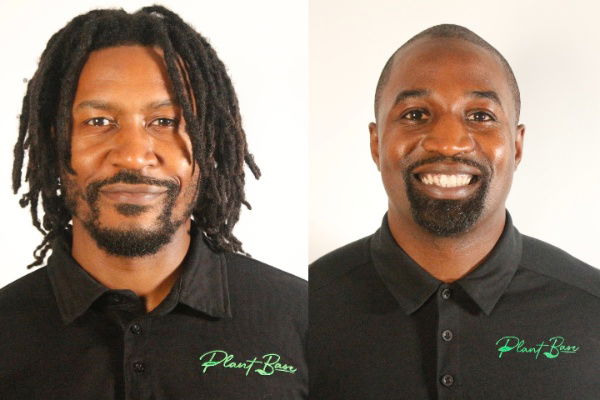
As cannabis laws continue to relax nationwide alongside the booming cannabis sector, two Black men are poised to transform New Jersey’s cannabis market independently.
Meet Kevon Carter and Prince Abidoye, the founders of Plant Base, New Jersey’s premiere Black-owned and operated cannabis dispensary and cultural hub. Still, in the development phase, Plant Base’s vision goes beyond simply opening a store; it aims to create a pivotal space where culture and cannabis intersect, redefining how this ancient plant is integrated into contemporary life.
Plant Base envisions creating a welcoming space for cannabis consumption alongside a versatile event venue for branded gatherings, podcasts, and social functions—a first-of-its-kind in the New Jersey market. Although their approach is straightforward, Carter and Abidoye’s ambition to reshape the traditional dispensary model while remaining proudly Black-owned and operated has turned out to be more difficult than anticipated.
It’s been five years in the making since the company’s founding in 2019. However, Carter and Abidoye have a friendship dating back to the basketball courts of New York City at the age of 16. Over the next two decades, Carter earned his undergraduate degree from Georgia State, followed by a master’s from Canisius, and pursued a career in strength training. Meanwhile, Abidoye graduated from California State University, Stanislaus, and applied his skills in the field of social work. Leveraging their diverse professional backgrounds, the two childhood friends reunited to become trailblazers in an industry where independent Black-owned cannabis businesses make up less than 2%.
In July, Gov. Phil Murphy (D) signed the New Jersey Cannabis Regulatory, Enforcement Assistance, and Marketplace Modernization Act into law, legalizing and regulating cannabis use and possession for adults 21 years and older and decriminalizing marijuana and hashish possession. The policy shift could help and hinder Plant Base’s growth by enabling the grey market to flourish with low-cost bulk cannabis that skirts legal boundaries while simultaneously offering the emerging business a chance to break into the billion-dollar industry, bringing the founders closer to achieving generational wealth.
In an exclusive interview with BLACK ENTERPRISE, Carter reveals the plans he and Abidoye have to revolutionize the industry and become the first Black men to achieve this independently. Although there are other Black-owned dispensaries in New Jersey, external investments have often prevented them from remaining fully Black-owned. However, Plant Base’s founders have managed to retain 90% of their license ownership, with only 10% going to their investors, all without support from multi-state operators.
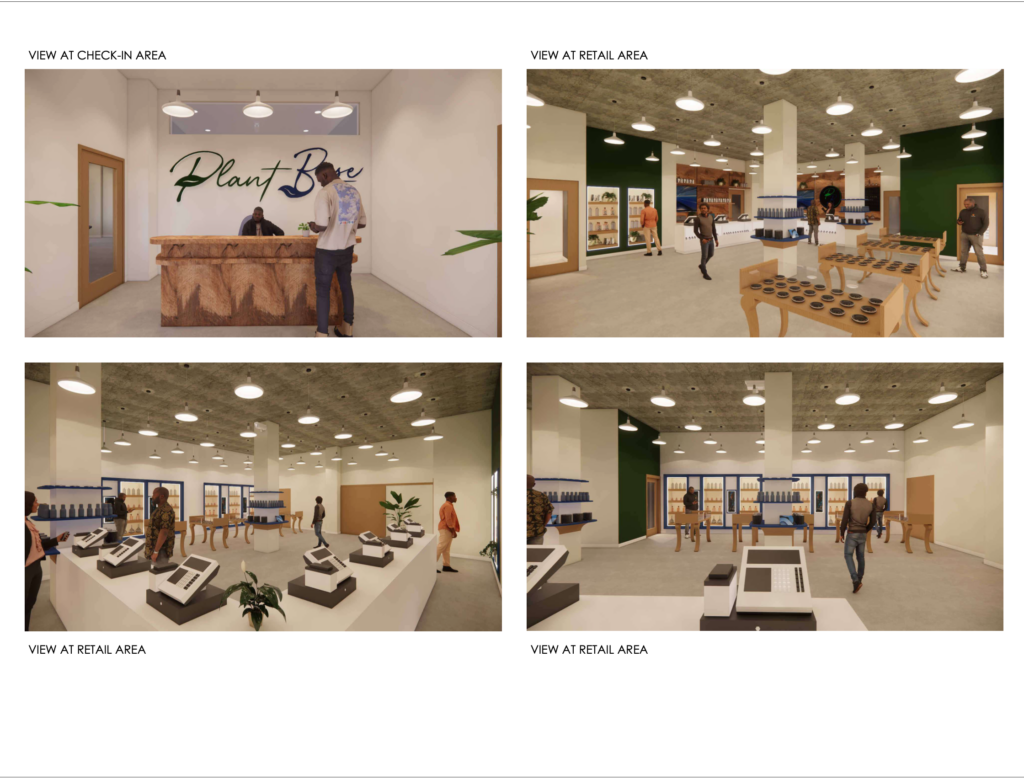
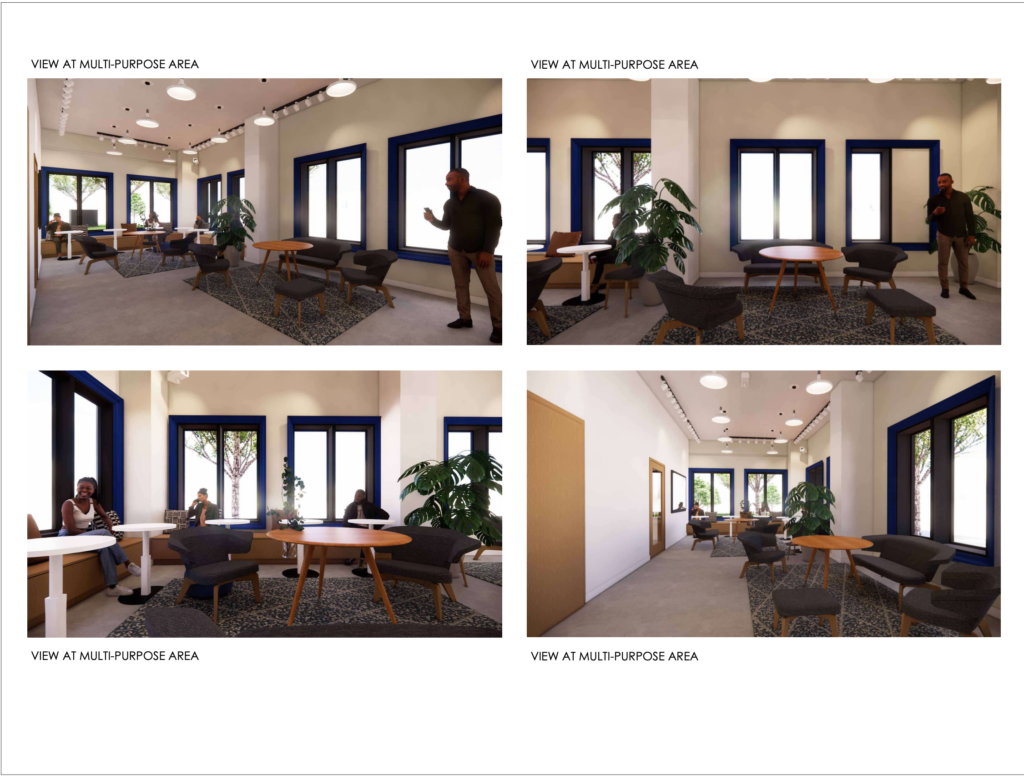
Tell us about Plant Base and what inspired the venture.
Plant Base is a lifestyle brand that merges community, wellness, and cannabis. The name “Plant Base” is a play on words, reflecting multiple layers of meaning. Growing up in Flatbush, Brooklyn, a highly Caribbean populated section of Brooklyn, Prince and I were familiar with a plant-based lifestyle, or “Ital” living. As a strength and conditioning coach, I integrated wellness concepts from my education and culture into the brand. My
growing awareness of plant-based living extended to my approach to food and cannabis, leading me to use the plant with intention.
Prince, with his background in social work, saw the brand name as representing community and foundation. He was dedicated to strengthening communities and families into a bond that created the foundation. In another sense, Plant Base is planting a seed that can lead to wealth for our families and entrepreneurial endeavors beyond what we can see.
When we returned to Brooklyn from college—Prince from Northern California and I from Atlanta—we reunited with friends and discussed our experiences. The evolution of the cannabis industry in California, from medicinal to adult use, inspired us. Recognizing that cannabis would eventually reach the East Coast, we founded Plant Base in 2018, aiming to become a trusted brand in the New York/New Jersey tristate area. A big inspiration for us beginning this journey stems from both of our family’s experiences with the war on drugs and mass incarceration; it felt right to create a brand that embodies our culture and lifestyle as we were directly affected in many ways.
Despite initial setbacks with our 2019 medical license application and then the abrupt halt to the world because of COVID, we persevered. We built a stronger team, gained more experience, and raised over $500K. As a Class 5 Annual license holder, we’re developing an innovative cannabis retail experience. We want to contribute to the emerging East Coast cannabis culture by promoting wellness, creativity, and community
through our unique offerings.
How do you plan to use Plant Base to disrupt New Jersey’s cannabis market?
In New Jersey, where the cannabis market is still forming its identity, our goal is to become a premier brand by fostering community and demonstrating how cannabis can be intentionally incorporated into daily life. In those efforts, we’re currently building out a 4,200 sq. ft. facility with a creative community space called Home Base. This space will host podcasts, brand installations, and social events and offer a workspace for members—a unique feature not found in many New Jersey dispensaries.
RELATED CONTENT: Finance Experts Say A Quarter Of Married Couples Are Foregoing Vital 401(K) Savings
In 2022, we started our own podcast during the licensing phase to document our journey and educate new Black applicants about the process. Home Base will allow for content creation from us and an additional revenue stream for those needing space for
brand installations, product showings, and even consumption. It’s designed to be a creative and productive space where people can safely work, create, and consume.
Along with our retail services, we will launch a delivery service to reach the surrounding towns that opted out of cannabis companies. Given the developing nature of the NJ market, we plan to collaborate with other brands to create new products that align with our identity and build relationships with small-batch cultivators and manufacturers to ensure quality.
Why do you think there aren’t many Black-owned and operated dispensaries in NJ and in the country?
Nationally, Black cannabis business owners make up only 4.3% of the industry, with an even smaller percentage being small business owners. The cannabis industry is capital-intensive, and traditional banking hasn’t been supportive due to the lack of federal legalization. Many people in our community don’t have millions of dollars or the investor networks needed to start a cannabis company.
Locally, challenges include securing real estate and navigating municipalities, many of which were unprepared with regulations for this new industry to become operational. Finding suitable real estate and connecting with municipalities to support cannabis businesses is difficult, especially with only a third of NJ opting in initially. A high cannabis tax is usually added to rentals or the purchase of land, which further
complicates the opportunity to get into the industry.
As a result, many Black operators face significant barriers, often having to sell majority ownership to overcome these challenges or, unfortunately, selling their license.
What are some challenges you’ve faced while launching Plant Base?
As part of the inaugural licensing process, we faced numerous delays. It took almost a year to secure our real estate, which we then had to hold for two years without generating revenue—lengthy state and municipal timelines burned through a good chunk of capital. Finding a general contractor who valued our project was challenging. It was difficult to get the opportunity to have specific discussions until we had legal representation because a lot of this process has relationship factors to move things along.
Additionally, we were ineligible for state grants. The stipulations stated your cannabis company couldn’t have been created before 2020. Banking remains a significant hurdle, as cannabis is not federally legal, limiting our access to loans and traditional banking services.
Do you face particular barriers because of your race/ethnicity?
Yes, but the barriers are more about where we come from. Most Black entrepreneurs face capital challenges across industries because we often don’t come from wealth or have extensive networks for investment, especially in a capital-intensive field like cannabis.
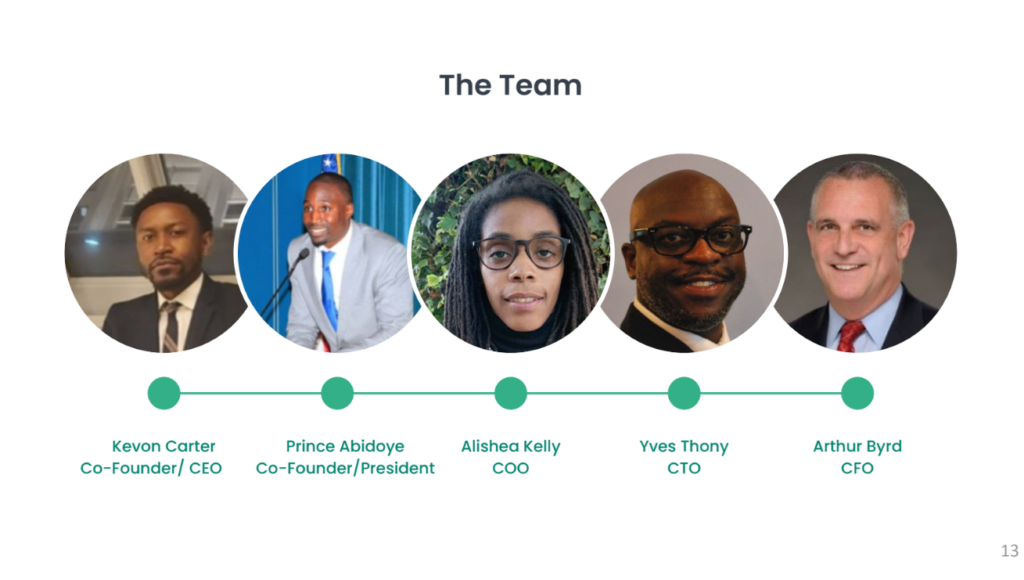
What has the funding process been like for you? Would it be different if you decided not to remain independently Black-owned and operated?
We assembled a C-suite team of five, which helped us raise over $500K in our initial funding round. Many investors believe in our team’s cannabis and business expertise. With unexpected delays from the state and municipality, we realized we needed to raise additional capital. Nonetheless, we still have funding from the first round of investments and moving closer to our first retail space coming to life. Selling majority ownership
upfront would have expedited our opening, but it could also have led to predatory deals or minority ownership stakes.
Are there plans to expand Plant Base beyond the NJ market?
Yes, we plan to become a premier brand in our own lane. While our first store is located in Downtown Plainfield, NJ, we currently have a retail space in the Crown Heights section of Brooklyn, New York, and an application is under review. As we initially focus on retail, we aim to expand into manufacturing to build our brand and company further.
How can people get involved in bringing Plant Base to life?
We are currently seeking $300,000 in funding, available in exchange for equity or as a debt investment. This capital will support our goal of opening in the Fall/Winter of 2024. Interested parties can contribute by connecting to our crowdfunding campaign or contacting us directly at kcarter@plantbasellc.com for Kevon, Co-Founder/CEO.










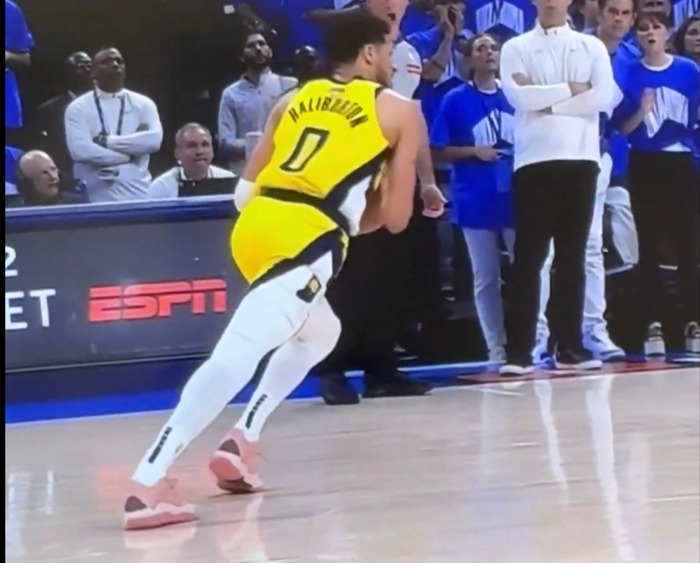

![Chart Check [Billboard 200]: Miley Cyrus’ New Album ‘Something Beautiful’ Slips Nearly 100 Spots in Week 2](https://150893825.v2.pressablecdn.com/wp-content/uploads/2025/05/miley-cyrus-more-lose-music-video-something-beautiful-2025-thatgrapejuice.jpg)